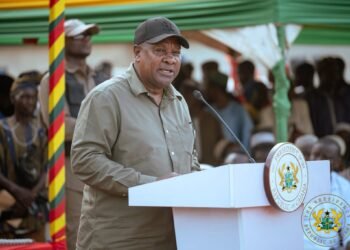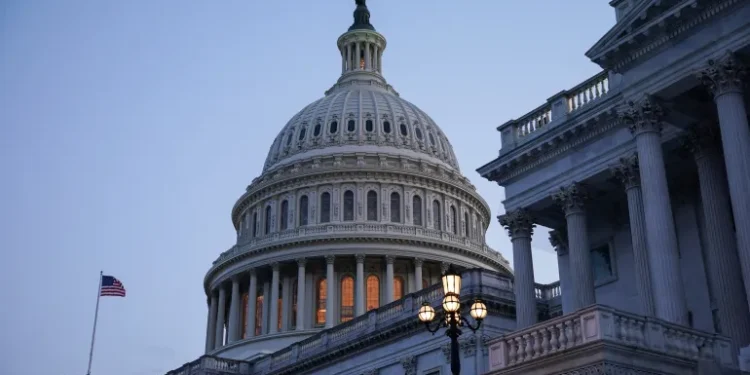Ghana’s Ministry of Health is partnering with the International Atomic Energy Agency (IAEA) for the establishment of a Radiotherapy Centre in Tamale to assist cancer treatment in the northern parts of the country.
A delegation from the International Atomic Energy Agency (IAEA), led by their Deputy Director-General, Mr. Hua Liu, paid a courtesy call on the Minister for Health, Hon. Kwabena Mintah Akandoh, to discuss plans toward establishing a radiotherapy and nuclear medicine center in the capital city of the Northern Region to expand access to cancer treatment in northern Ghana.
The International Atomic Energy Agency (IAEA) is an intergovernmental organization that was established in 1957 as an autonomous organization within the United Nations system
It is the world’s center for cooperation in the nuclear field, promoting the safe, secure, and peaceful use of nuclear technology. It works in a wide range of areas, including energy generation, health, food and agriculture, and environmental protection.

At the meeting between Ghana’s ministry of health and the International Atomic Energy Agency (IAEA), both parties reasserted their commitment to deepening collaboration in nuclear medicine, radiotherapy, and capacity building under the IAEA’s technical cooperation program.
The technical cooperation program is the IAEA’s primary mechanism for transferring nuclear technology to member states, helping them to address key development priorities in areas such as health and nutrition, food and agriculture, water and the environment, industrial applications, and nuclear knowledge development and management.
It is noted that cancer treatment in Northern Ghana is a major problem that has often left cancer victims to struggle, as there is not a reliable treatment center in the region, like what the Ministry of Health and the International Atomic Energy Agency (IAEA) seek to do.
The Minister for Health, Hon. Kwabena Mintah Akandoh, emphasized the timeliness of the project, given the dire need for cancer treatment centers in the northern parts of the country, as cancer patients from the northern regions often travel long distances to Kumasi and Accra for radiotherapy services.
“It is heartbreaking that many have to journey across regions, or even to neighboring countries, for treatment. Establishing this facility in Tamale will bring hope and relief to thousands of patients.”
Hon. Kwabena Mintah Akandoh, Minister for Health
This initiative falls in line with the government’s plans for healthcare delivery under the Ghana Medical Trust Fund (MahamaCares), which seeks to cover the cost of care and medication for Non-Communicable Diseases (NCDs) not currently included under the National Health Insurance Scheme (NHIS), thereby complementing it by supporting critical aspects of these conditions.
Launched by President Mahama earlier this year, the Ghana Medical Trust Fund (MahamaCares) is purposed to mobilize funds to aid the treatment and medication of Non-Communicable Diseases (NCDs) such as stroke, cancer, kidney failure, and diabetes.

The National STEPS survey 2023 report, which provides household-based data on Non-Communicable Diseases (NCDs) and serves as a baseline for Ghana’s response and management strategies, states that NCDs are responsible for approximately 45 percent of all deaths in the country.
Hon. Akandoh, therefore, was enthused with this initiative, given its promising potential for the government’s plans for healthcare delivery in the country.
He, however, noted that the Ministry has yet to receive a bankable document for the proposed radiotherapy project and will work tirelessly to secure the necessary support for its implementation.
On the part of the International Atomic Energy Agency (IAEA), Deputy Director-General Mr. Hua Liu commended Ghana’s longstanding partnership with the IAEA and highlighted the country’s leadership role in nuclear medicine education and training through the School of Nuclear and Allied Sciences.
He emphasized that Ghana’s progress in radiological science demonstrates the value of sustained technical cooperation, adding that the International Atomic Energy Agency (IAEA) remains committed to delivering its core mandate under the IAEA’s technical cooperation program, which will involve helping Ghana strengthen its radiotherapy infrastructure and human resource base as the country seeks to curb the fast-growing incidence of Non-Communicable Diseases (NCDs).
READ ALSO: NNPC Champions Energy Equity and Global Partnerships at ADIPEC 2025























